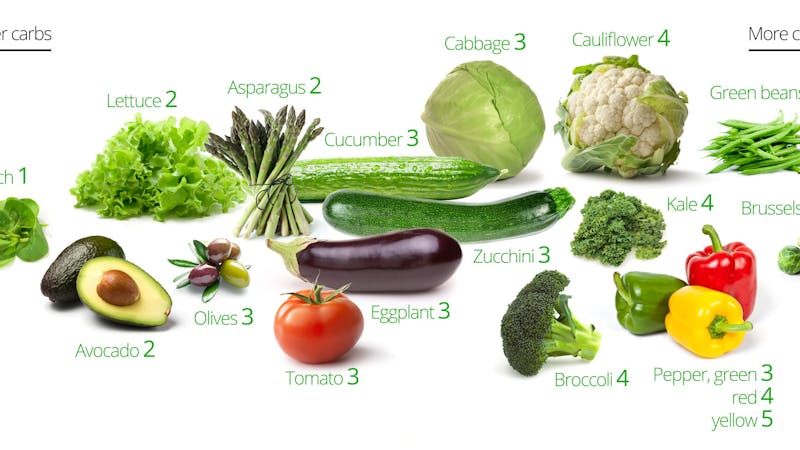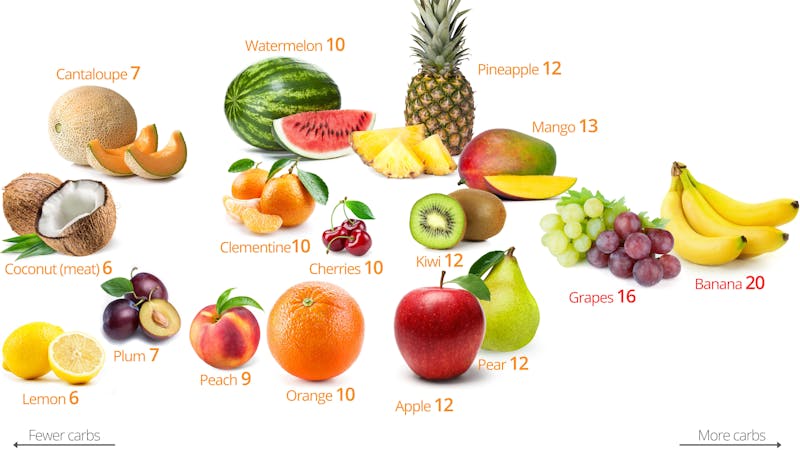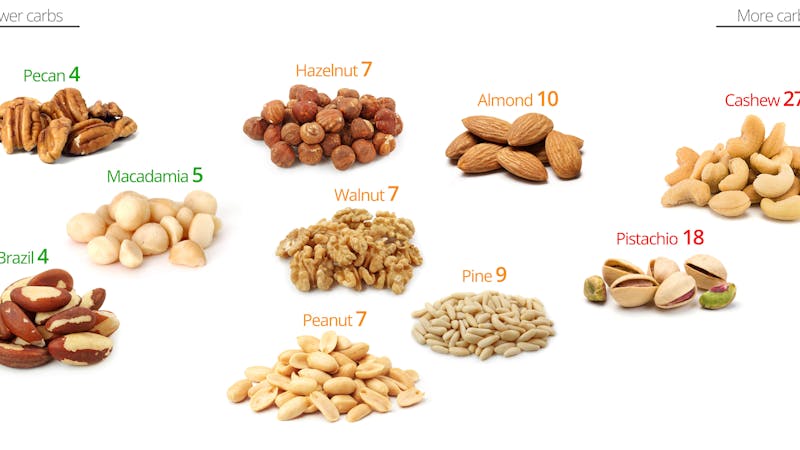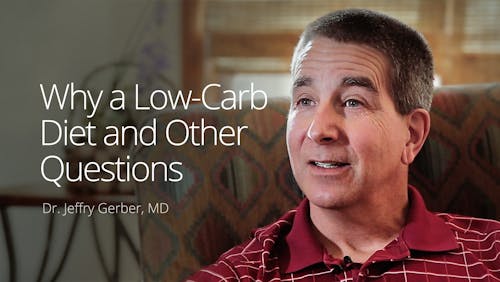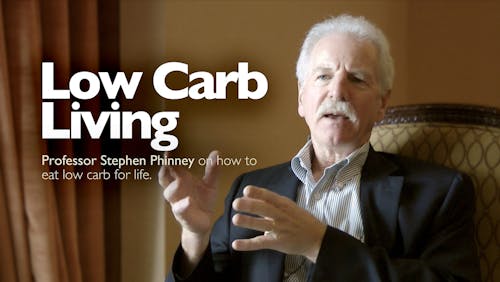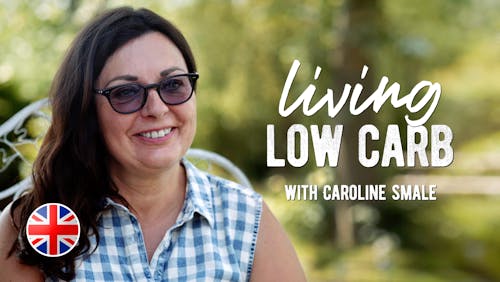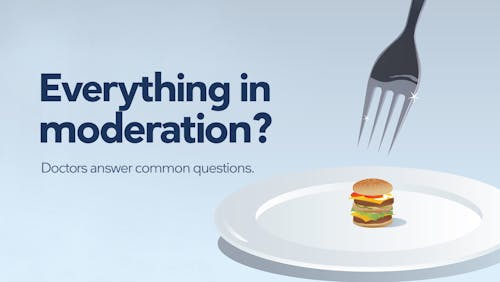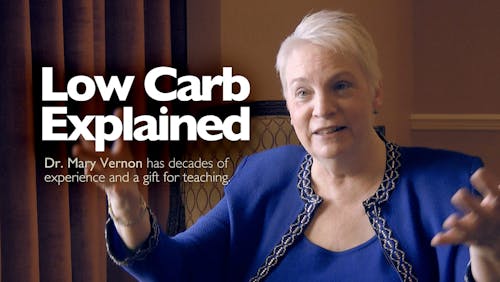A low-carb diet does not mean a low-fiber diet

Another day, another flurry of media stories claiming the low-carb diet is unhealthy and may shorten your life.
This time, international headlines are saying a new “landmark study” is showing that in order to have a lower risk of disease and death you need to eat a high-fiber, high-carb diet that includes plenty of whole grain pasta, cereals and bread.
The headlines are a result of a recent publication in The Lancet of systematic reviews and meta-analyses around carbohydrate quality and human health. The research, funded in part by the World Health Organization (WHO), was conducted by a team from the University of Otago, in New Zealand, co-lead by Prof. Jim Mann.
The Lancet: Carbohydrate quality and human health: a series of systematic reviews and meta-analyses
Prof. Mann has spoken out in the past, about his belief that low-carb diets are “rubbish” and that countries’ dietary guidelines have had it right to focus on plenty of whole grains.
His new study examined 185 prospective studies and 58 clinical trials over 40 years and concluded there was a direct relationship between the highest intake of dietary fiber and a protective benefit against cardiovascular disease, type 2 diabetes, colorectal cancer and breast cancer. The study concluded people should be eating 25 to 30 grams of fiber a day and that their analysis found that those who ate the most fiber had a 15 to 30 percent reduction in deaths from all causes.
In media interviews following the study’s release he stressed that carbohydrate quality is important and that sugar and refined grains are “bad carbs” but oats and whole-grain bread, cereal and pasta are “good,” high-fiber carbs.
We strongly agree with that first part — sugar and refined grains ARE bad carbs! And, it shouldn’t surprise anyone that cutting out processed foods like white bread, cookies, cakes and sugary beverages and replacing those foods with whole-grain, unsweetened cereal or wheat berry pilaf will lead to health improvements. That says nothing about swapping out whole-food, low-carb staples like vegetables, olive oil, and meat or fish with whole-grain products. We don’t believe that study has been done, especially in a population restricting carbohydrates.
And we obviously don’t share his firm belief that whole-grain bread, cereals and pasta are good carbs that are an essential need in our diet. For some of us, we already know these products send our blood glucose sky-high and make us sick with IBS and other conditions.
Some news outlets, like the UK newspaper The Guardian are claiming, however, the study is another “blow” to the low-carb diet, saying the findings are “incompatible with fashionable low-carb diets.”
Others like USA Today quoted Mann as saying: “Our findings provide convincing evidence for nutrition guidelines to focus on increasing dietary fiber and on replacing refined grains with whole grains. This reduces incidence risk and mortality from a broad range of important diseases.”
The Guardian: Blow to low-carb diet as landmark study finds high fiber cuts heart disease risk
Do people doing the low-carb keto diet need to heed this advice and add whole grains back into their diets? Can these studies really make such dramatic conclusions?
We would say definitely not. Here’s why:
Two key things to know
1. Low-carb diets are not low fiber
A myth that keeps getting repeated about low-carb or ketogenic eating is that it is all animal fat and protein, with very little fiber. This is simply not true.
As our pages and guides show, you can eat plenty of fiber-rich above ground vegetables, almost to your heart’s content. Low-carb, high-fiber berries like raspberries, blackberries and blueberries are allowed, too. So are many nuts. Check out our guide to low-carb vegetables, our guide to low-carb fruit and our guide to low-carb nuts below:
Diet Doctor: Thirty grams of carbs, two ways
Diet Doctor: Twenty and 50 grams of carbs, two ways
In fact, a few days after The Guardian ran its piece saying high fiber was incompatible to low carb, a number of letters arrived rebutting that uninformed statement. Noted Dr. Nick Evans, from the faculty of medicine at the University of Southampton:
Your article fundamentally misunderstands the distinction between carbohydrate and fiber. Vegetables are stuffed full of fiber…. to state that low-carb diets are consequently going to be low in fiber is untrue and misleading.
Rebuttal in The Guardian: Carbohydrates, fiber and a healthy diet
2. Understanding the strength of evidence from observational, epidemiologic studies of nutrition
At Diet Doctor, we want to help people understand the various forms of research and the strength of evidence they can produce. This study largely relied on meta-analyses of observational studies. These sorts of studies can only suggest associations and do not prove causation.
Check out our Guide to observational vs. experimental studies
As famed Standford health research Dr. John Ioannidis noted last year, most nutritional research is seriously flawed and needs radical reform. He notes that meta-analyses of individual observational studies just compounds the flaws and creates results that are redundant, misleading, or serving conflicting interests.
A few months ago another study claimed lower carb diets were linked to shorter lives. Dr. Andreas Eenfeldt did a good job of exposing the flaws in that observational study. What he said back then, applies just as much now:
Most importantly, when looking beyond these weak statistical studies to higher-quality intervention trials (you know, where people actually try a low-carb diet), low-carb diets regularly result in more weight loss and improved health markers compared to other diets (see this list of studies and findings).
Earlier
Is a low-protein, high-carb diet the key for a better aging brain? Maybe in mice
Could a low-carb diet shorten your life?
Low-carb diets get a seat at the table
